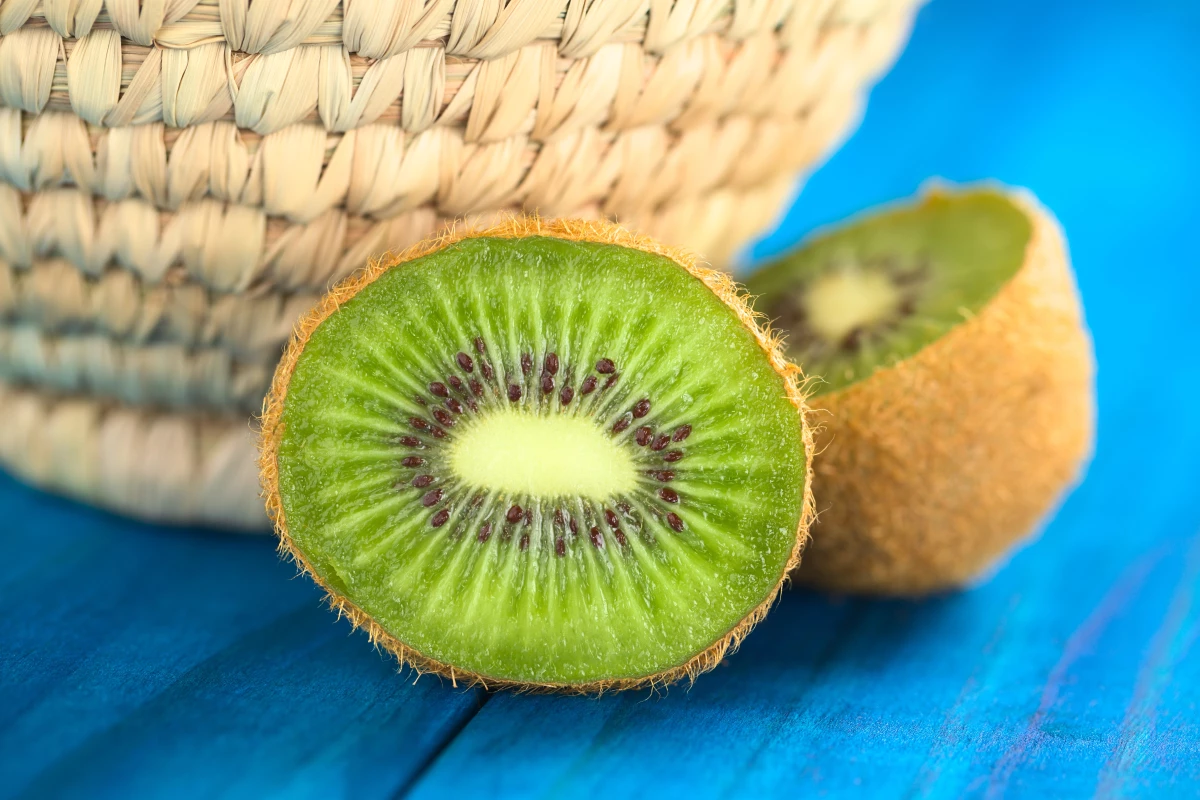For the first time, scientists have used evidence-based research to rewrite the advice on what to consume to relieve constipation, doing away with the broad "high-fiber diet" mantra. And one fruit in particular has been proven to be most effective.
Researchers at King’s College London (KCL) investigated which foods, drinks, or supplements are the most effective at relieving chronic constipation, examining 75 randomized controled trials to determine new guidelines for treating this common issue. The findings have been endorsed by the British Dietetic Association (BDA) and provide a template for transforming how constipation is managed by clinicians and guiding individuals to better manage their symptoms.
"For foods, three recommendation statements related to kiwifruits, two to prunes, and two to rye bread," the researchers wrote. "For drinks, five recommendation statements related to high mineral-containing water. No recommendations were made for whole diet approaches due to a lack of evidence."
Traditionally, a high-fiber diet has been the go-to advice, which can be seen in the US Dietary Guidelines for Americans, which suggests adults should have at least 28 g of fiber a day. And while there are broad health benefits from eating a high-fiber diet – such as lower cholesterol and blood sugar levels – not all fiber is created equal when it comes to constipation relief. In fact, only one robust trial measured a diet high in fiber (25–30 g/day) against one low in fiber (15–20 g/day).
“Eating a high fiber diet offers many benefits to overall health and has been a go-to recommendation for constipation," said Dr Eirini Dimidi, lead author and Associate Professor in Nutritional Sciences at KCL. "However, our guidelines found that there simply isn’t enough evidence to suggest it actually works in constipation specifically. Instead, our research reveals some new dietary strategies that could indeed help patients. At the same time, we urgently need more high-quality trials to strengthen the evidence on what works and what doesn’t.”
Green kiwifruit (Actinidia deliciosa) came out on top with the strongest science-based evidence behind it as an effective constipation reliever. And there are a few reasons for this. The fruit swells when mixed with water – even more than apple fiber – which makes stools bulkier. The classic green kiwi also contains an enzyme, actinidin, that helps the body digest protein, which could also assist in softening high-protein foods in the gut. The fruit also has raphides – needle-shaped crystals of calcium oxalate monohydrate – in their structure, which is believed to boost mucus production in the gut, providing lubrication for stool passage. And kiwifruit might also help suppress methane-producing bacteria, which has previously been associated with constipation.
For chronic constipation, when someone is only able to pass a few, hard stools over at least three months, the researchers recommend eating two to three kiwis daily for at least four weeks. The most fiber is found in the fruit's skin – however, consuming kiwis without the skin still delivers benefits.
Other new recommendations include drinking 0.5 to 1.5 liters (two-to-six cups) of high mineral-content water per day, over a period of two-to-six weeks. This type of water is high in magnesium and sulfate, which draws water into the intestines to soften stools. Magnesium was also the one standout non-food recommendation, suggesting that a supplement of 0.5 to 1.5 g per day for at least four weeks could provide effective relief. (This is not recommended for people with kidney disease, however.)
Rye bread also made the list of strong recommendations, however, the advice to consume six-to-eight slices a day for three weeks might be more challenging than adding a couple of kiwis to a breakfast bowl – and certainly won't work for anyone with coeliac disease.
The researchers produced 59 recommendations from the 75 studies, consulting with a panel of experts that included dietitians, a nutritionist, gastroenterologist, gut physiologist and GP. What they found was that while they were able to make recommendations, the overall quality of existing studies is poor and better research is required for diet-led constipation management.
"Chronic constipation can have a huge impact on someone’s day-to-day life," said Dimidi. "For the first time, we’ve provided direction on what dietary approaches could genuinely help, and which diet advice lacks evidence.
"Being able to improve this condition through dietary changes would allow people to self-manage their symptoms more and, hopefully, improve their quality of life," she added.
"While previous medical guidelines for the management of constipation have included dietary recommendations, they almost exclusively focus on fiber quantity and/or type, omitting a variety of other effective dietary interventions that have been previously studied," the researchers wrote. "For the first time, the current guidelines offer recommendations for various dietary interventions that have not been previously included in medical guidelines. For example, recommendations have been made for magnesium oxide supplements, kiwifruits and high mineral-content water, highlighting that these may improve cardinal symptoms of constipation."
The research was published in the Journal of Human Nutrition & Dietetics and Neurogastroenterology & Motility.
Source: Kings College London





